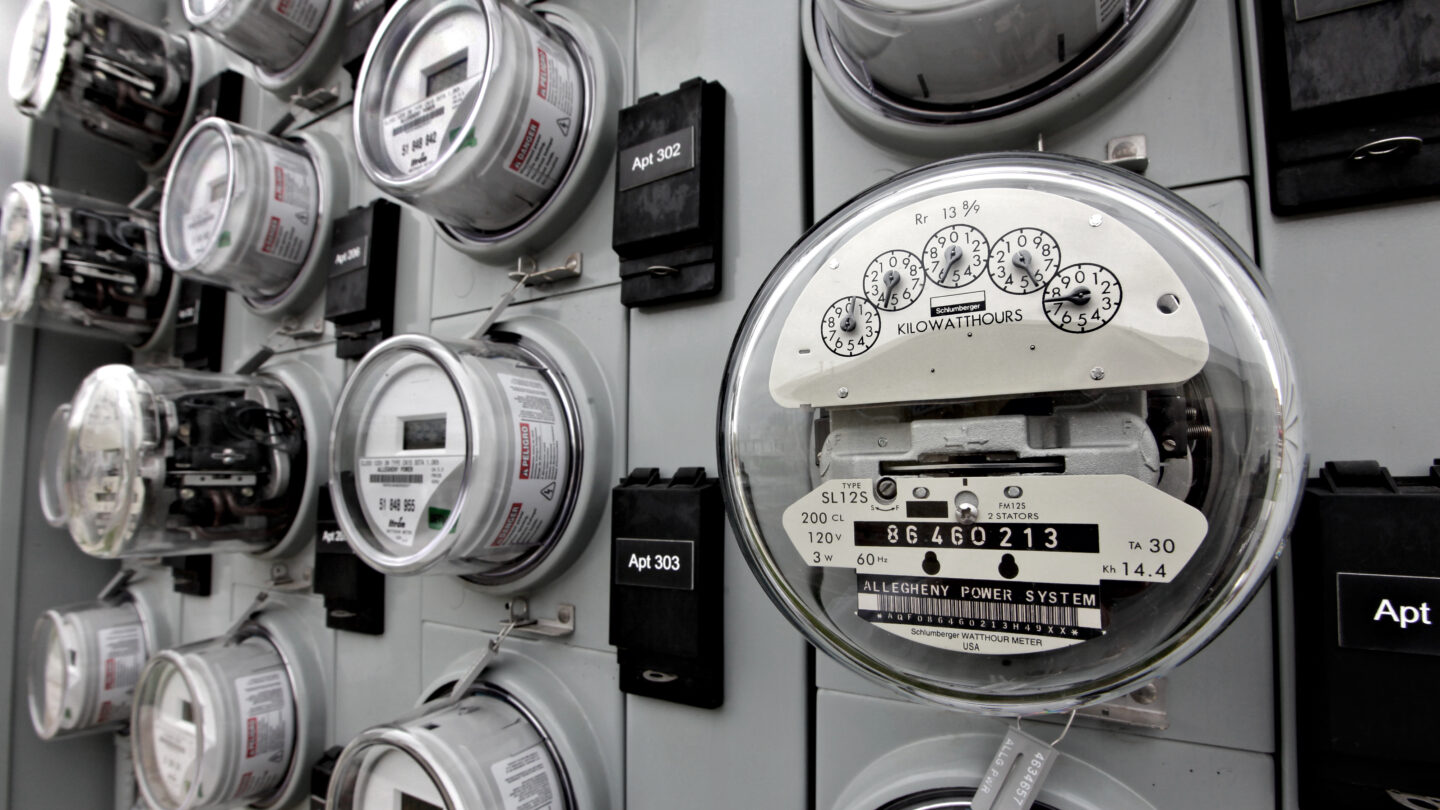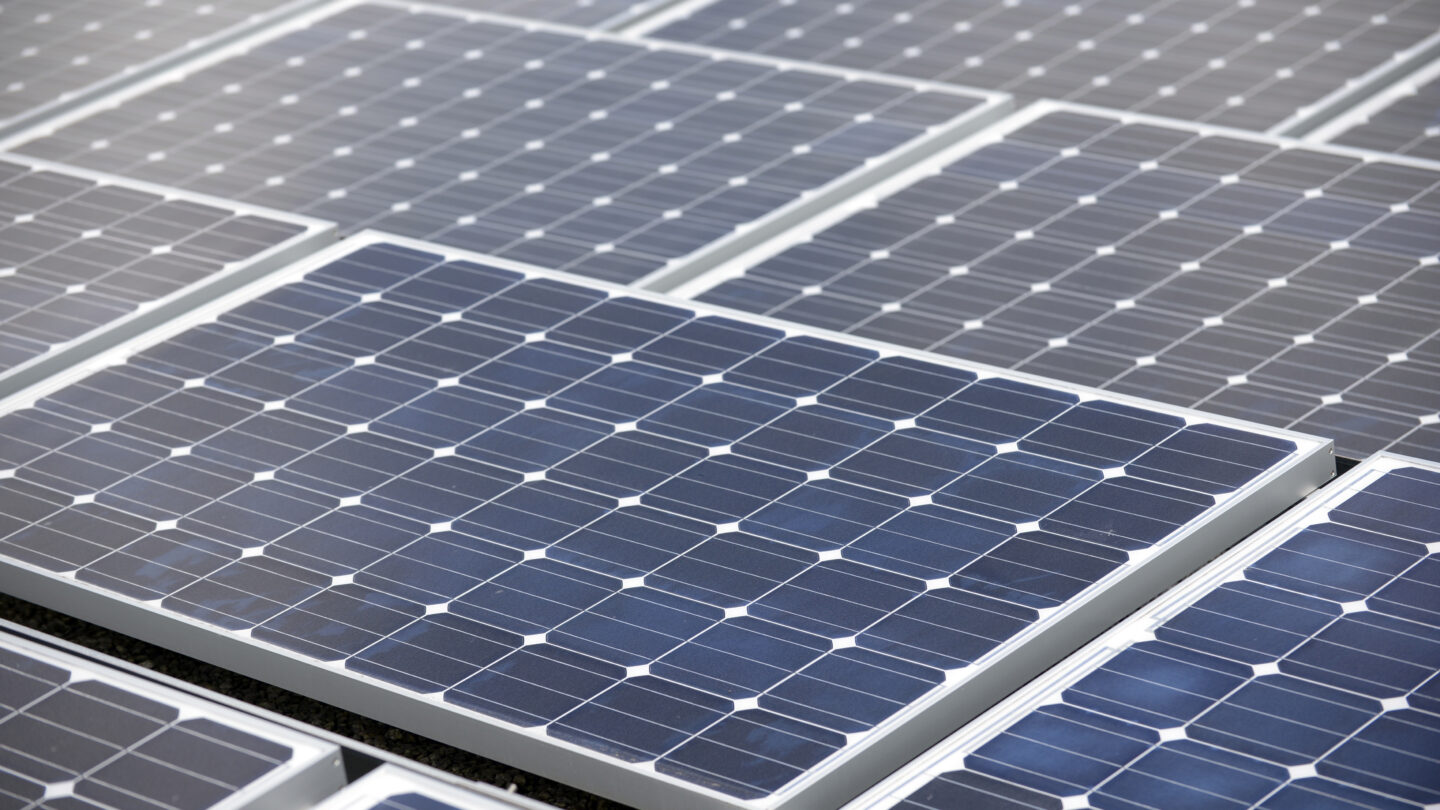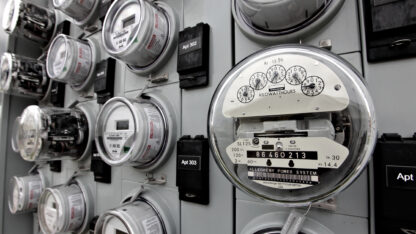Georgia regulators weigh electricity price hike, EV charging

This coverage is made possible through a partnership with WABE and Grist, a nonprofit, independent media organization dedicated to telling stories of climate solutions and a just future.
Georgia’s utility regulators are considering a steep rate hike for Georgia Power customers, while also weighing the future of rooftop solar power and electric vehicle charging programs in the state.
Georgia Power is asking to raise rates by 12% over the next three years, starting with a hike in January that would amount to about $14 a month for a typical residential customer. The utility says it needs the money to improve its grid and to increase profits for shareholders.
The company, which is the state’s largest utility and the only option for electric service for millions of Georgians, made its case for the rate hike to the Public Service Commission in September.
Experts for the commission’s public interest advocacy staff, as well as advocates, companies and governments pushed back on that testimony over three days of hearings this week. They questioned the need for greater profits and the company’s spending on grid improvements. And members of the public pleaded with the commission not to raise rates.
“This is real. Life is real,” said Shemika Simmons, who traveled from Savannah to Atlanta for the hearing. “When rates go up, lights go out.”
Profits
Georgia Power’s request to increase the return on equity, or ROE, that shareholders receive has raised eyebrows and was a persistent concern in the public comment portions of this week’s hearings. Former Democratic state Sen. Vincent Fort called it “price gouging,” particularly in light of high inflation.
“Tell them they make enough profit,” Fort urged the commission. “Tell them that you are standing up for regular folk.”
The company maintains that raising the ROE will help maintain its credit rating, which has been downgraded amid delays and cost overruns in the construction of new nuclear reactors at Plant Vogtle. Georgia Power’s witnesses said a good credit rating helps the company respond quickly to emergencies, like hurricanes.

But witnesses for the commission’s public interest staff and for the Department of Defense recommended lower ROEs than the company asked for, and maintained the lower figures would not hurt Georgia Power’s credit.
Economist Maureen Reno, testifying for the DOD, said the company’s expert “tends to cherry pick” figures to support the profit figures Georgia Power has proposed.
Reliability
The need to maintain and improve the power grid is a key part of the company’s case for higher rates. Economic development officials have testified at both rounds of hearings about the importance of reliable power in attracting businesses to the state, and electric workers echoed the need for reliability during public comment this week.
“I understand why my friends and neighbors are concerned about the rising cost of living. I feel their pain,” said lineman Carlos Fernandez. “However, I’m certain to you that a strong, [reliable] electrical grid is something that we can not afford to compromise on.”
But Paul Alvarez, a consultant for the commission’s public interest advocacy staff, told the commission that Georgia Power’s plan for grid improvement doesn’t make sense.
“There is simply not enough reliability improvement from these packages to justify their extremely high costs,” he said.
He said the company is wasting money replacing equipment based on its age even when it’s still working. Alvarez recommended focusing instead on failing equipment.
Lawyers for Georgia Power countered that it makes sense to replace equipment once it reaches a certain age because it’s more likely to fail as it gets older.
Who needs chargers?
In a preview of next year’s legislative session, electric vehicle charging took center stage for much of this week’s hearings – thanks in part to a recommendation by the public interest staff to deny funding for a “make-ready” program to expand EV charging.
Georgia Power has requested $27 million for infrastructure that would support EV chargers around the state, to be paid for via electricity rates. But the staff argues that program isn’t in the public interest, so ratepayers shouldn’t have to pay for it.
“That equipment is not used to serve the general body of electric utility customers,” said staffer Robert Trokey.
The claim that EV charging isn’t in the public interest proved contentious.
Interveners, including the Sierra Club and a group of local governments, pointed out that cities or school districts converting their fleets to electric vehicles could use the make-ready program to support charging for those vehicles.
Commissioner Tim Echols also spoke in favor of the make-ready program, pointing out that it’s been used for chargers near the Port of Savannah and along key routes to the Atlanta airport, where electric car-share vehicles transport travelers.
“Would you say that building fast chargers with make-ready on customer sites between here and Hartsfield [Jackson International Airport] would have a public benefit?” Echols asked the staff panel.
Trokey responded that staff doesn’t oppose EVs or charging, but that the free market rather than utility ratepayers should meet that need.
State Rep. Alan Powell, the Republican chair of the House Regulated Industries Committee, also made a surprise appearance before the commission to discuss EVs. He offered recommendations from a House study committee on EV charging, mostly related to how the business of charging should work in Georgia.
Georgia legislators and officials have so far declined to incentivize EVs despite actively working to woo manufacturers like Rivian and Hyundai to the state. Powell made clear that’s unlikely to change. He criticized states like California, which this year mandated that all new vehicle sales be electric or hybrid by 2035.
“I think with some of the issues and public policies in California, by that time there may be a few more people out wielding hammers,” Powell said, in an apparent reference to the recent attack on U.S. House Speaker Nancy Pelosi’s husband.
Rooftop
Another closely-watched question in this case is the fate of a popular rooftop solar program known as RNR monthly netting.
People with their own solar panels send some of that solar power back to Georgia Power’s grid – and they still buy some of their power from the grid. Under monthly netting, that happens as a one-to-one exchange — people are paid for their power at the same rate they pay for grid power.

But the utility says that’s not fair to customers without solar panels.
“RNR monthly netting customers only provide and offset the cost of energy they use but are compensated as if they provide utility services they don’t actually provide, such as the costs incurred for delivering that electricity,” said Lee Evans of Georgia Power’s parent, Southern Company.
The cost of maintaining the grid, including infrastructure like transformers and power lines, is part of the rate customers pay for their electricity. If rooftop solar users get to sell their extra power at that same retail rate, the company argues it shifts the cost of the grid onto other customers.
But other experts disagree.
In hearings earlier this year on the company’s long-range power planning, Marilyn Brown of Georgia Tech told the commission that Georgia just doesn’t have enough rooftop solar for this to be a problem.
“We’d have to grow rooftop solar by 33 times before the issue of cost shifting to non-participants might occur,” Brown said.
Georgia Power wants to use a system it calls “smart usage” that splits power bills into three: a fixed charge, a demand charge, and an energy rate that varies by time. Opponents of this plan say it’s hard for customers to understand and use, and ends up costing customers more.
Interveners will present their own testimony on the rooftop solar issue later this month.
The commission’s final decisions are due in December before new rates kick in on Jan. 1, 2023.








